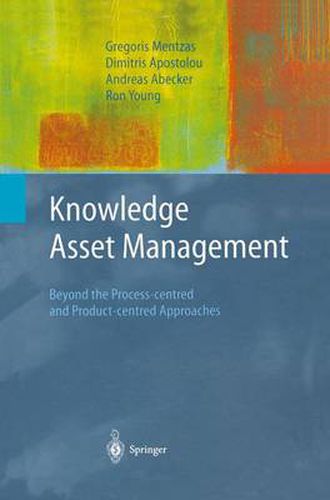Readings Newsletter
Become a Readings Member to make your shopping experience even easier.
Sign in or sign up for free!
You’re not far away from qualifying for FREE standard shipping within Australia
You’ve qualified for FREE standard shipping within Australia
The cart is loading…






This title is printed to order. This book may have been self-published. If so, we cannot guarantee the quality of the content. In the main most books will have gone through the editing process however some may not. We therefore suggest that you be aware of this before ordering this book. If in doubt check either the author or publisher’s details as we are unable to accept any returns unless they are faulty. Please contact us if you have any questions.
A new economy is emerging. An economy that is transforming the fundamental rules of business. An economy based on exploiting knowledge and innovation. An economy where knowledge is the main source of wealth for regions, nations, enter prises and people. This new economy is based on economic values far removed from those of the industrial economy. Value has shifted towards intangibles and in particular towards increasing value by incorporating knowledge into services and products. The advent of this new economy is rapidly changing the role and structure of global business. Winning enterprises are those best able to harness the benefits and opportunities of information and communication technology, capitalize on their knowledge base and move at the speed of the market. Knowledge management lies at the heart of the European Community’s competi tiveness strategy. The European Commission facilitates and supports applied research in knowledge management through its Information Society Technologies (1ST) programme, a major theme of research and technological development within the European Union’s Research and Technology Development Framework Programme. Specifically, the New Methods of Work and Electronic Commerce action of the 1ST programme supports long-term applied research in areas combin ing technological innovation with new work practices and advanced business and work models.
$9.00 standard shipping within Australia
FREE standard shipping within Australia for orders over $100.00
Express & International shipping calculated at checkout
This title is printed to order. This book may have been self-published. If so, we cannot guarantee the quality of the content. In the main most books will have gone through the editing process however some may not. We therefore suggest that you be aware of this before ordering this book. If in doubt check either the author or publisher’s details as we are unable to accept any returns unless they are faulty. Please contact us if you have any questions.
A new economy is emerging. An economy that is transforming the fundamental rules of business. An economy based on exploiting knowledge and innovation. An economy where knowledge is the main source of wealth for regions, nations, enter prises and people. This new economy is based on economic values far removed from those of the industrial economy. Value has shifted towards intangibles and in particular towards increasing value by incorporating knowledge into services and products. The advent of this new economy is rapidly changing the role and structure of global business. Winning enterprises are those best able to harness the benefits and opportunities of information and communication technology, capitalize on their knowledge base and move at the speed of the market. Knowledge management lies at the heart of the European Community’s competi tiveness strategy. The European Commission facilitates and supports applied research in knowledge management through its Information Society Technologies (1ST) programme, a major theme of research and technological development within the European Union’s Research and Technology Development Framework Programme. Specifically, the New Methods of Work and Electronic Commerce action of the 1ST programme supports long-term applied research in areas combin ing technological innovation with new work practices and advanced business and work models.